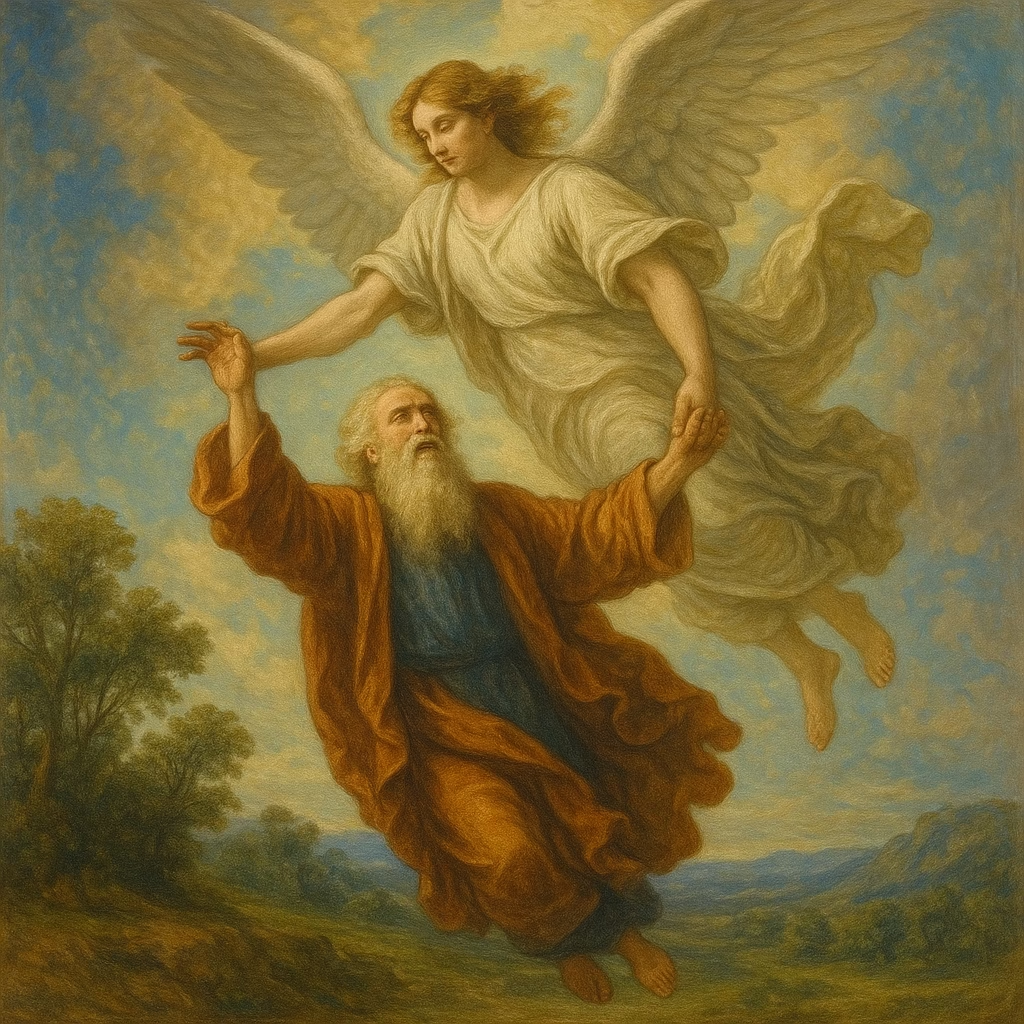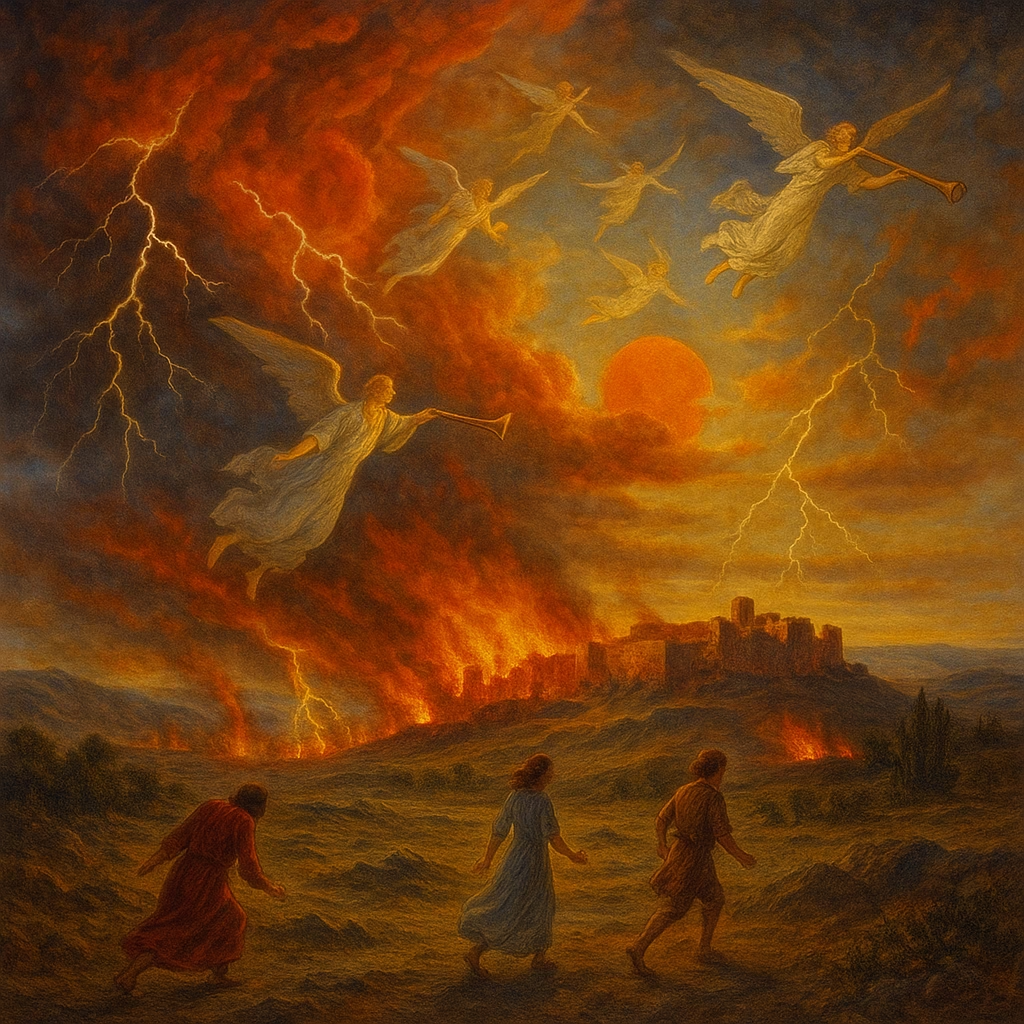The Book of Enoch is one of the most fascinating and controversial ancient texts ever discovered. Quoted in the Bible and referenced by early Christians, yet excluded from most modern biblical canons, this mysterious book continues to intrigue scholars, theologians, and believers alike.
In this article, we’ll explore the Book of Enoch, its origins, its contents, why it’s not in the Bible, and what it reveals about angels, demons, and God’s divine judgment.
What Is the Book of Enoch?
The Book of Enoch, also known as 1 Enoch, is an ancient Jewish apocalyptic text attributed to Enoch, the great-grandfather of Noah (Genesis 5:18–24). Although not part of the standard Bible, it played a significant role in the religious thinking of the Second Temple period.
Date Written: Estimated between 300 BCE and 100 BCE
Language: Originally written in Aramaic and Ge’ez (Ethiopian)
Length: 108 chapters, divided into five major sections
Main Themes of the Book of Enoch
The Watchers and the Nephilim
Fallen angels called “Watchers” descend to earth, marry human women, and create giants known as the Nephilim (Genesis 6:1–4 reference).
Judgment of the Wicked
God condemns the Watchers and foretells a final judgment for both humans and rebellious angels.
Visions of Heaven and Hell
Enoch describes detailed journeys through heaven and the places of punishment, similar to apocalyptic visions found in Revelation.
The Coming of the Messiah
Enoch references a “Son of Man” who will judge the earth, a term echoed by Jesus in the Gospels.
Why Isn’t the Book of Enoch in the Bible?
Though it was highly regarded by many early Christians (even quoted in the Book of Jude), the Book of Enoch was eventually excluded from the biblical canon. Reasons include:
- Authorship Doubts – Scholars question if Enoch truly wrote it.
- Non-Hebrew Origin – It wasn’t accepted in the Jewish canon.
- Controversial Content – Its focus on angels, demons, and end-times was seen as speculative or theologically risky.
- Canonical Debates – Different churches accepted different books. The Ethiopian Orthodox Church still includes 1 Enoch in its canon.
Is the Book of Enoch Quoted in the Bible?
Yes! The Book of Jude (Jude 1:14–15) directly quotes 1 Enoch, which says:
“Behold, the Lord comes with ten thousands of his holy ones, to execute judgment on all…”
This confirms that early Christians were familiar with the book and even considered it authoritative in some contexts.
Should Christians Read the Book of Enoch?
While it’s not considered inspired Scripture by most churches, the Book of Enoch can:
✅ Deepen your understanding of Jewish apocalyptic thought
✅ Shed light on the spiritual worldview during Jesus’ time
✅ Help interpret difficult passages like Genesis 6 and Revelation
Caution: Always read non-canonical texts through the lens of Scripture and guided by the Holy Spirit.
Historical Influence of the Book of Enoch
Early Church Fathers like Tertullian and Origen referenced Enoch with respect.
Dead Sea Scrolls found at Qumran included fragments of Enoch, confirming its popularity among ancient Jewish sects.
Modern theologians study it to gain context on New Testament angelology and demonology.
Conclusion
The Book of Enoch is not in the Bible, but it played a powerful role in shaping early Christian and Jewish views of angels, judgment, and the Messiah. While it should not be treated as Scripture, it can provide valuable insights into the supernatural worldview of the Bible and help us better understand God’s plan for humanity.
If you’re serious about trusting God’s plan, it’s worth learning what people of faith in biblical times thought, and Enoch gives us a glimpse into their spiritual world.
✅ FAQs
Q: Is the Book of Enoch banned?
A: No, but it was excluded from the biblical canon due to concerns about authorship and doctrine.
Q: Is the Book of Enoch real?
A: Yes. Manuscripts were discovered among the Dead Sea Scrolls, confirming its ancient origin.
Q: Who are the Watchers?
A: Angels who descended to earth, mated with human women, and produced the Nephilim.






